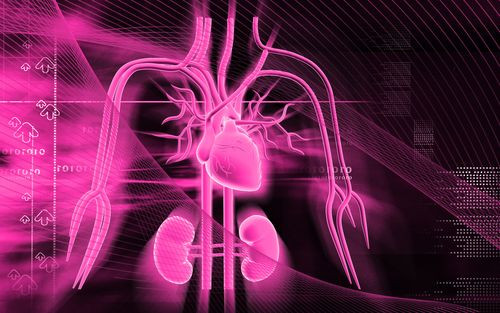Measuring Calcium In Arteries May Best Predict Heart Disease Risk In Patients With Kidney Disease

Kidney dysfunction can greatly increase a risk of developing cardiovascular disease due to a build-up of calcium around the blood vessels. A new study suggests that measuring concentrations of these deposits can be a better indicator for heart disease risk in a patient with chronic kidney disease (CKD) than conventional tests. The findings, which will be published in the Journal of the American Society of Nephrology, could considerably improve diagnoses.
The kidneys play an important role in maintaining heart health by maintaining blood pressure and regulating the flow of important electrolytes. So, any kidney malfunction may result in blood pressure going unregulated, which in turn puts pressure on the heart. Kidneys also help maintain levels of calcium in the blood. When kidneys get diseased and are unable to flush the calcium out, it gets deposited in the heart's blood vessels. This condition is called atherosclerosis, a form of heart disease.
Previous studies have shown that traditional assessments for heart disease risk factors aren't as helpful for patients with CKD. Dr. Kunihiro Matsushita, of the Johns Hopkins Bloomberg School of Public Health, and his colleagues wanted to see if measurements of calcium deposits within blood vessels would be better indicators. They took into account that fact that people with CKD metabolize calcium differently, which in turn affects the way it's deposited in coronary artery walls. Knowing this could help them assess risk of heart disease.
The team tracked 6,553 adults aged 45 to 84 who were participating in the Multi-Ethnic Study of Atherosclerosis. Of them, 1,284 had CKD and none had a history of heart disease. During a median follow-up of 8.4 years, 650 cardiovascular events were reported, including coronary heart disease, stroke, heart failure, and peripheral artery disease. Out of these, 236 patients had CKD.
For the study, the team assessed heart disease risk by measuring calcium buildup in the coronary artery walls, as well as other measurements like the thickness of the carotid artery walls and the narrowing of the arteries in the legs. They found that measuring calcium buildup provided was best for determining a CKD patient's heart disease risk, when compared to other measurements. It was especially good at assessing risk for coronary heart disease and heart failure.
"Our research is important since it assures the usefulness of coronary artery calcium for better cardiovascular disease prediction in persons with CKD, a population at high risk for cardiovascular disease but with potential caveats for the use of traditional risk factors," Matsushita said in a statement.
Source: Matsushita K, Sang Y, Ballew S, et al. Subclinical Atherosclerosis Measures for Cardiovascular Prediction in CKD. Journal of the American Society of Nephrology. 2014.



























